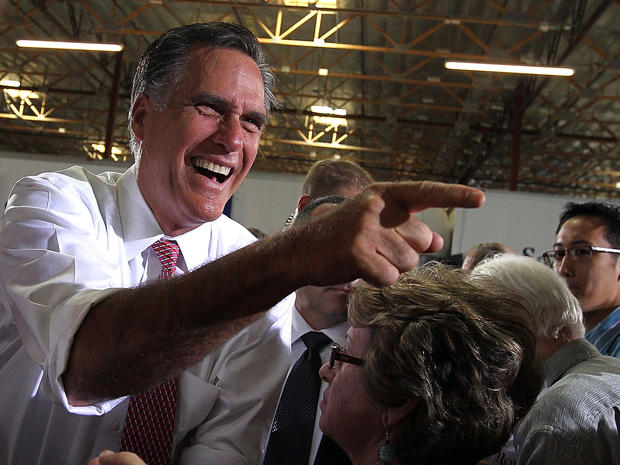GOP primary: Why the media hype was justified
This post originally appeared on Slate.
On Tuesday, Mitt Romney crossed the magic threshold of 1,144--the number of delegates he needs to win the GOP nomination. You didn't think you needed a yawn, but there ... I've given you a chance to open wide. This is a news-free event--we've known Romney has had it locked up for weeks--but there was a time when this was not considered such an eventuality. Not long ago, who would win the Republican nomination was a hotly contested question, an object of intense speculation, theorizing, and sharp retorts. But then everything fell into place.
Let's take a moment to examine the pace of political change. We are entering a fallow political period. The Olympics are coming. Voters are tending to their summer plans. When they're not on vacation, they're outside, away from the stun of endless political ads and vacuous cable debate. Still, fevered political analysis and coverage will continue. (I will be making ample contributions.) Some stories will be incredibly important, some will be notable, and some will be frivolous. To offer some perspective, let's look ahead and behind.
It has been 52 days since Rick Santorum dropped out of the race, rendering Romney's milestone in the Texas primary a nonstory. Fifty-one days before that event was Feb. 19. The story that dominated at the time was Romney's desperate fight for his political life. He had to beat a surging Rick Santorum in his home state of Michigan. Ohio looked to be up for grabs, and Romney, once heralded as a disciplined candidate with a well-oiled machine behind him, appeared plagued by missteps. (Remember Ford Field?) Newt Gingrich was plotting to convince delegates that he could pull off an upset in Tampa. (Gingrich was peddling the idea that he had a special relationship with the South.) Yesterday, Gingrich met with Romney in Las Vegas. The former speaker who railed against Romney for dishing "pious baloney" is now comparing Romney to Eisenhower. Oh, and let's not forget: brokered convention!
Sure, some of these storylines were overblown by the press, hyped by Romney's opponents. But a lot of the near-death drama was deeply felt within the Romney campaign. Also, much of what happened that wasn't important to the outcome was still notable--it showed us what Romney was willing to do in a fight (rely on Donald Trump to make last-minute robocalls in Michigan, for example). The prolonged Republican primary season brought to the fore a challenge Romney still struggles with today: how to appeal to core Republican voters while expanding his lead beyond the older white voters that make up the party's base.
The Republican primary was a lot like a Bond film: The outcome was predictable, but you could still have fun watching it happen. The truth of the GOP contest was that despite all the twists and turns, the conventional wisdom was always right: Romney had the organization, experience, and money to pull it off. (The Democratic primary in 2008, by contrast, did not end as the early conventional wisdom predicted.)
Now we come to the general election, where a weak incumbent is dependent on an uncertain economic recovery to win the votes of an anxious and skeptical public over a challenger who is not well liked. That is the 2012 presidential contest in a sentence. The conventional wisdom now is that the election is going to be really close and centered around how people feel about the economy. Obama has a better organization and an electoral map with more routes to victory. Romney has the big benefit of a weak economy and an electorate unhappy with Obama's handling of the issue.
Fifty days from now it will be July 25, still a month before the party conventions, and all of this will still be true. There may be occasional squalls--Contraception! Same sex marriage!--but the contours of this year's election story will be the same. If you're inclined to pay more attention to your backyard barbeque or the little league games, go ahead. During this period, what's dramatic today (Romney up by six in Florida!) is likely to change tomorrow (Obama up by four in Florida!). It's likely that most of the important and meaningful events of the summer will have as little chance of changing the conventional wisdom as many of those leading up to this once-important moment that passed Tuesday without much fanfare.
More from Slate:
Save the Jury
Congressman Jeff Miller's Office Sends Birther Twitter Poll, Deletes It
Obama's "Kill List" Hides the Drone War's Dark Side

